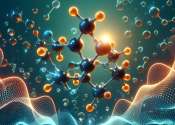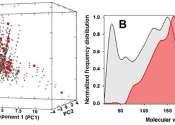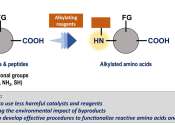Chemists produce new-to-nature enzyme containing boron
Boronic acid has been used in organic chemistry for decades, even though it is not present in any organism. "It gives rise to different chemical reactions than those we find in nature," explains Gerard Roelfes, Professor ...





